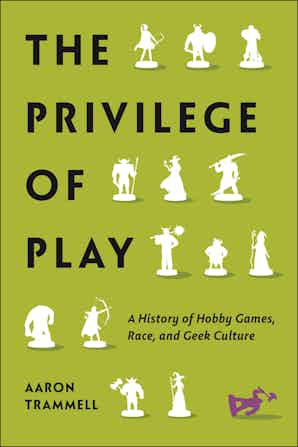Technically I restarted after leaving it too long. Not the book's fault. Fantasy that feels more like sci-fi in that it talks about the present in the guise of another world, rather than being a phantasy of bucolic racialist feudalism. Has labour and a mode of production, and every story is far richer for that. Highly recommend.
Reviews and Comments
i mainly read non-fiction of a "trying to understand/overthrow capitalism" type, usually histories. in terms of fiction, my heart is primarily with sf (octavia butler and kim stanley robinson being my tops, i'd say).
perpetually frustrated i don't read more.
This link opens in a pop-up window
never always finished reading City of Last Chances by Adrian Tchaikovsky (The Tyrant Philosophers, #1)
Technically I restarted after leaving it too long. Not the book's fault. Fantasy that feels more like sci-fi in that it talks about the present in the guise of another world, rather than being a phantasy of bucolic racialist feudalism. Has labour and a mode of production, and every story is far richer for that. Highly recommend.
never always finished reading Cardboard Ghosts by Amabel Holland
Its grrrreat!
never always finished reading Dark: Selected Writings of Brendan Hughes by Brendan Hughes
"Take the gun out of Irish politics--maybe. But not at the command of those in [Leinster House, Stormont, and Westminister (parliaments governing Ireland)]. As long as there is injustice the gun will always be there. And if we really want to take it out why not give it to the Palestinians? And who will have the cheek to tell us that they do not need it?" --Brendan Hughes, H-Blocks IRA prisoners' OC during 1980 hunger strike, writing in 2002
"Take the gun out of Irish politics--maybe. But not at the command of those in [Leinster House, Stormont, and Westminister (parliaments governing Ireland)]. As long as there is injustice the gun will always be there. And if we really want to take it out why not give it to the Palestinians? And who will have the cheek to tell us that they do not need it?" --Brendan Hughes, H-Blocks IRA prisoners' OC during 1980 hunger strike, writing in 2002
never always commented on Master and commander by Patrick O'Brian
Well, its about what I expected. Jane austen for boys, with worse writing, no women with interiority, and rather than contemporary it is a post war brit romanticising 150yrs prior. Not sure I can even tell my family member I consumed any of it. Plus my "listen to audiobooks 8h a day" job is done for another while so who knows when I could bang the rest out. Maybe I never will.
(Jane Austen fucking rules by the way, don't get me wrong.)
Well, its about what I expected. Jane austen for boys, with worse writing, no women with interiority, and rather than contemporary it is a post war brit romanticising 150yrs prior. Not sure I can even tell my family member I consumed any of it. Plus my "listen to audiobooks 8h a day" job is done for another while so who knows when I could bang the rest out. Maybe I never will.
(Jane Austen fucking rules by the way, don't get me wrong.)
never always started reading Master and commander by Patrick O'Brian
never always finished reading A Canticle for Leibowitz by Walter M. Miller Jr.
never always started reading A Canticle for Leibowitz by Walter M. Miller Jr.
never always rated Games: Agency As Art: 4 stars

Games: Agency As Art by C. Thi Nguyen (Thinking Art)
Games are a unique art form. Games work in the medium of agency. Game designers tell us who to be …
never always finished reading Games: Agency As Art by C. Thi Nguyen (Thinking Art)
Super interesting book that was maybe a bit too philosophically nirty gritty for me read. The author is a good speaker and has talked aboit it on a number of podcasts, maybe i didnt need more depth than that. But very good.
The gist is: Games are a form of art whose medium is agency, like poetry's is language, and dance's is movement. Nguyen breaks down different theories of play and bears down on one of his own creation, which identifies a type of play that is common but uncovered by other theories: aesthetic striving play. Devoting oneself to the goal of a game ("winning") purely for the aesthetic appreciation of striving within a particularly structured form of agency. We do not care about winning per se, still less about having more cubes on our side of the table than the opponent, but if we get what we are …
Super interesting book that was maybe a bit too philosophically nirty gritty for me read. The author is a good speaker and has talked aboit it on a number of podcasts, maybe i didnt need more depth than that. But very good.
The gist is: Games are a form of art whose medium is agency, like poetry's is language, and dance's is movement. Nguyen breaks down different theories of play and bears down on one of his own creation, which identifies a type of play that is common but uncovered by other theories: aesthetic striving play. Devoting oneself to the goal of a game ("winning") purely for the aesthetic appreciation of striving within a particularly structured form of agency. We do not care about winning per se, still less about having more cubes on our side of the table than the opponent, but if we get what we are seeking by temporarily taking that goal on, focussing on it as if we care deeply about it, and then immediately discard it afterwards.
He also talks about the dangers of harms of "gamification" where we use these simplified value structures as shortcuts to our supposed real deep value systems. Fitbit steps for health. GPAs for knowledge. Likes for social engagement. Etc.
never always wants to read Privilege of Play by Aaron Trammell
never always finished reading All Systems Red by Martha Wells (Murderbot, #1)
never always finished reading Perfect Sound Whatever by James Acaster
never always started reading Surfing into Life on a Bathboard by Jake MacSiacais
never always finished reading Le nouveau nom by Elena Ferrante
There are many great aspects, but I find these books extremely frustrating and all I ever hear, from close friends and pronouncements on the internet, is that they're fantastic. Crazy-making. If anyone knows any critical reviews I would very much like to read them. I will not be continuing with the series.
(I read it in English, I just somehow picked the French version...)
There are many great aspects, but I find these books extremely frustrating and all I ever hear, from close friends and pronouncements on the internet, is that they're fantastic. Crazy-making. If anyone knows any critical reviews I would very much like to read them. I will not be continuing with the series.
(I read it in English, I just somehow picked the French version...)











